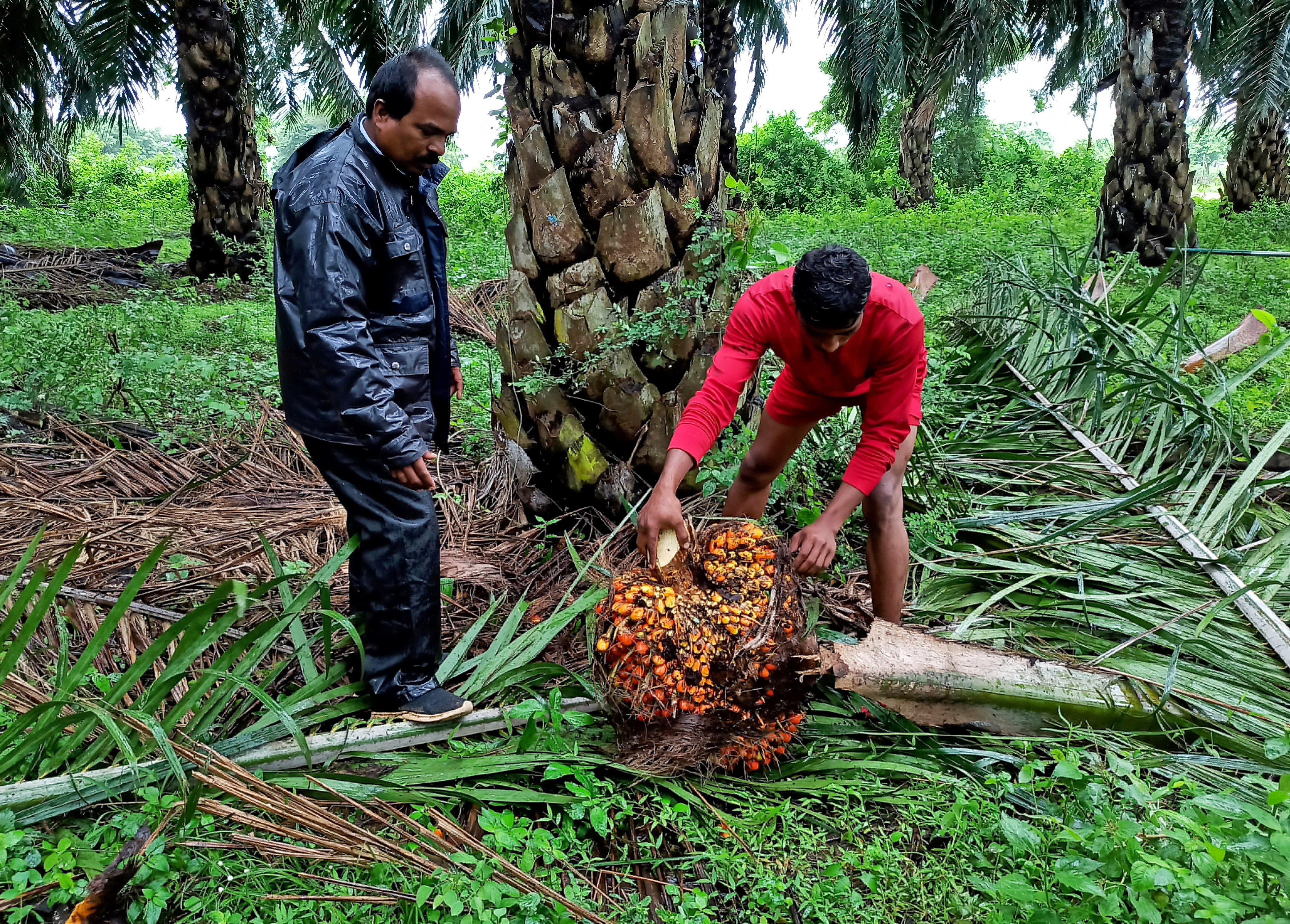Unprecedented 56% Surge in India’s June Palm Oil Imports Mark a 3-Month High: Trade Body

Unprecedented 56% Surge in India’s June Palm Oil Imports Mark a 3-Month High: Trade Body
As prices dropped to their lowest in 28 months, imports increased to 683,133 metric tonnes in June from 439,173 metric tonnes in May, according to a Mumbai-based Solvent Extractors’ Association of India (SEA) statement.
According to a major trade organisation, purchasers took advantage of a drop in pricing to expand purchases, driving India’s palm oil imports up 56% to a three-month high in June. As prices dropped to their lowest in 28 months, imports increased to 683,133 metric tonnes in June from 439,173 metric tonnes in May, according to a Mumbai-based Solvent Extractors’ Association of India (SEA) statement.
/cloudfront-us-east-2.images.arcpublishing.com/reuters/WGS465SU55MGNNDRB63RLFGXM4.jpg)
The world’s largest vegetable oil importer’s purchasing would increase, supporting Malaysian palm oil futures and assisting major producers Indonesia and Malaysia in reducing stocks. The level of imports in May was the lowest since February 2021 because consumers switched to the less expensive soft oils after tropical oil began selling at a premium to soy and sunflower oil in prior months.
But in recent weeks, palm oil has regained its competitiveness and has been trading at a discount to soyoil, attracting new customers, according to a global trade house dealer in New Delhi. Asia’s price-conscious consumers frequently purchase palm oil due to its low cost and speedy transportation. According to the SEA, soy oil imports increased by almost 37% in June to 437,658 tonnes, while sunflower oil imports decreased by 35% to 190,785 metric tonnes.
It also stated that the nation’s overall vegetable oil imports increased by nearly 24% to 1.3 million metric tonnes. While importing soy and sunflower oil from Argentina, Brazil, Russia, and Ukraine, India primarily purchases palm oil from Indonesia, Malaysia, and Thailand. Due to its growing price disadvantage over rival soy oil, palm oil imports in July may surpass 700,000 tonnes, according to the dealer.

Indian palm oil imports witnessed a meteoric rise of 56% in June, hitting a three-month high, according to data from a leading trade body. This sudden leap in palm oil consumption clearly reflects a steady recovery of the nation’s food service sector amidst relaxation in COVID-19 lockdown measures, surges in international palm oil prices, and changes in global supply chains.
The Solvent Extractors’ Association of India (SEA), the country’s prominent edible oil industry association, revealed in its latest report that imports of palm oil reached 869,652 tonnes in June 2023, a stark 56% surge compared to the same month in the previous year. Notably, this rise in import marks the highest level recorded since March 2023, highlighting the substantial demand for this key ingredient in Indian kitchens and food service industry.
The upsurge in India’s palm oil imports has primarily been attributed to various factors. With the slow but steady easing of pandemic-related restrictions and the resumption of normal operations in hotels, restaurants, and other food service providers, there has been a strong rebound in palm oil consumption. The increased usage by the country’s massive fast-food industry, known for its heavy reliance on palm oil for cooking, has been a major contributing factor.

Moreover, there have been fluctuations in the global supply chain, with restrictions on shipments and changes in cultivation patterns due to climatic conditions affecting production in major supplying countries like Malaysia and Indonesia. These disruptions have driven international palm oil prices, prompting Indian traders to stock up for further price rises.

The decision to reduce import duties on palm oil by the Indian government earlier this year also seems to have played a critical role in this import boom. The step was taken to ensure the steady supply of this essential edible oil and prevent domestic price spikes, protecting Indian consumers from global market fluctuations.
This surge in palm oil imports reflects a revival in India’s food service sector and underlines the country’s position as one of the largest global importers of this commodity. As India heavily depends on imports to meet its edible oil requirements, changing global palm oil production or prices can significantly impact its domestic market.
However, the rise in palm oil imports highlights a deeper issue – India’s heavy reliance on foreign markets to meet its edible oil demand. The Indian government has been working to increase domestic oilseed production as a part of its “Atmanirbhar Bharat”, or self-reliant India initiative, aiming to reduce the dependency on imports in the long term.

It is anticipated that India’s palm oil imports may remain high over the next few months, given the ongoing recovery of the food service sector and the uncertainty surrounding global palm oil supply chains. However, any future course will also depend on the government’s policy on edible oil imports, global market dynamics, and progress in increasing domestic oilseed production.
The rise in India’s June palm oil imports is a complex interplay of global market dynamics, domestic consumption patterns, and governmental policies. As India continues to tread the path of economic recovery post-pandemic, the edible oil market will undoubtedly play a crucial role in its journey.




